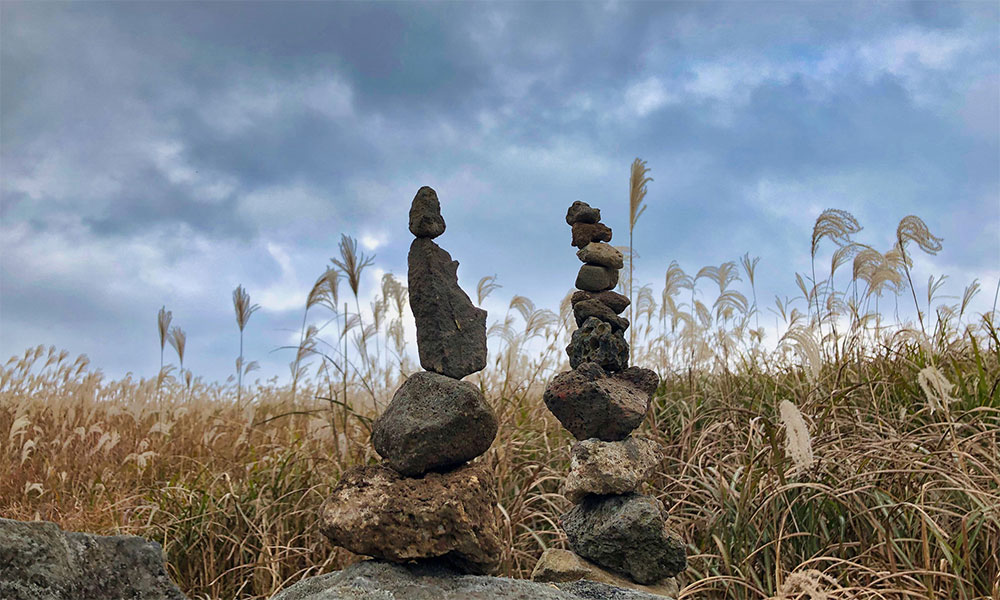Follow effective action with quiet reflection. From the quiet reflection will come even more effective action. ~ Peter Drucker, management guru
In the midst of the pandemic, many of us had the chance to take more pauses. There were plenty
of moments for introspection. I took this opportunity to start writing down my thoughts and feelings. The habit turned in a daily ritual and became useful – not only as an antidote to
faltering memory (alas, an unintended consequence of age J) but also enabling a better
perspective of things.
The benefits of reflection are now widely recognised. Forward-thinking leaders have been trying to carve out time in their busy routines for thinking, introspecting and mining their own insights.
As Nancy Adler notes in her Harvard Business Review article:
Extraordinary leadership is rooted in several capabilities: seeing before others see, understanding before others understand, and acting before others act. A leader’s unique perspective is an important source of creativity and competitive advantage.
So, this week, my message focuses on the leadership benefits of keeping a journal. How can this humble habit help you unlock the hidden depths of your leadership? What are some of the ways in which you can start and develop your journaling practice?
Keeping a journal holds a strong appeal that cuts across time and geography. From Leonardo da Vinci, Marie Curie and Ernest Hemingway to Ronald Reagan, Deepak Chopra and millennial Instagrammers, the global community of diarists is incredibly varied. Journaling has been described in a variety of ways: “me time”, therapy, mindfulness, problem-solving, innovation…all rolled into one!
Why journaling is worthwhile
Leaders today are expected to hone skills like emotional intelligence, empathy, vulnerability and authenticity. Keeping a journal opens up a private, non-judgmental space for you to explore and develop these competencies. Researchers at Harvard Business School found that just 15 minutes of reflection at the end of the workday boost performance.
Reflecting on daily experiences has been shown to enhance creativity, mental agility and decision-making. It also clarifies your thoughts and creates greater self-awareness – both of which are vital for any leader to succeed.
Journaling offers an effective way to manage stress: it helps you make sense of conflict, process failure and release negative emotions. By giving you the opportunity to work through challenges, it facilitates learning and problem-solving.
The benefits also extend to your wellbeing. Some studies have found that keeping a journal strengthens your immune system and relieves symptoms of anxiety and depression. As psychologist Dr Jane McCartney explains:
Writing something down stops things from going around and around in our heads. This puts things in perspective; it stops you from obsessing and can help us make sense of our jumble of thoughts and feelings.
Along with being cathartic, journaling brings greater intentionality into your life – as a leader, and as an individual. Once you get past the surface chatter, you will be able to access deeper perspectives that connect you more closely with your purpose, values and aspirations. At its best, this kind of daily reflection helps leaders to grow into their most authentic selves. Not to mention you will also create an archive of personal reflections and memories, to which you can return again and again, be it for inspiration or clarity.
Develop your journaling practice
Here are 10 suggestions to help you start your journaling journey and use it to improve your leadership:
1. Get a paper journal.
Putting pen to paper provides benefits that are tough to access online. By activating a part of the brain that enhances attention and retention, writing by hand allows you to express your thoughts with authenticity and mindfulness. Tapping keys simply doesn’t have the same impact. In a Fast Company piece on the topic, Aytekin Tank notes:
Putting pen to paper can also increase focus and brain activity in the motor cortex, which can induce a meditative state of mind. Given that the average American spends over 10 hours a day in front of a screen, keeping a physical journal can offer a much-needed break from that ever-present glow.
2. Start small and steady.
Keeping a daily journal doesn’t require much time – but it does need discipline. Given our hectic schedules, carving out a daily window for introspection can feel difficult. That is why it’s important to commit to a time that seems realistic, be it 15 minutes or even 10 minutes to start with.
3. Set a regular time.
Stay on track by journaling at the same time every day. Regular diarists recommend making it a part of your morning ritual, or incorporating it into your evening routine. You can decide what works best based on when you are more at leisure. Once you’ve chosen the time slot, stick to it so it becomes part of your day’s natural rhythm.
4. Write whatever you like.
Your journal is a space for mental meandering, exploration and questioning. Don’t self-edit or censor yourself here. Write whatever you like, however you like – that’s the whole point! As Adler says in the above-mentioned article:
A journal’s blank pages invite you to hold an honest conversation with yourself every day. In the journal, you can say anything. So give yourself permission to follow your stream of consciousness without judging, censoring, or trying to direct where your thoughts might take you.
5. Infuse the ritual with joy.
Instead of viewing it as a chore, make journaling something to look forward to. Find a tranquil spot to reflect and write, and bring along a cup of your favourite beverage. Go with a format that feels most comfortable to you: stream of consciousness, bullet points or even text interspersed with doodling. Some people may choose a beautiful diary to inspire themselves, while others prefer to keep it simple with a spiral notebook.
6. Use prompts as a starting point.
When you’re just getting started, journaling can be a daunting prospect. If you find yourself staring blankly at your journal, use questions to kickstart your thought process. Adler suggests the below as prompts:
- How am I feeling right now?
- How am I feeling about my leadership?
- What deserves my highest-quality attention in my leadership? in my life? in the world?
- What is the most outrageous (or fun or novel) idea I’ve heard in the last 24 hours? What do I love about it?
- What is the most exciting initiative I’ve heard about this week that is happening outside of my industry or in another part of the world?
In her piece for Huffpost, executive coach and journaling advocate Christi Hegstad offers some more questions to get your ideas flowing:
- What did I particularly enjoy doing as a child?
- Who are the 3-5 people I admire most in the world? What do I admire about them?
- What activities light me up, energise me, or make me feel stronger, better, or more inspired?
- If I am completely honest with myself, what beliefs or assumptions hold me back?
- When do I feel the most successful? Like I am in the right place, doing exactly what I’m supposed to be doing?
For the complete list, please see the original article.
Those seeking a more structured format could try the Leadership Journal Rule of Three:
- Three things I’m grateful for today
- Three things I did well today
- Three things I learned today
7. Commit to 30 days.
The rewards of journaling accrue over time and are exponential. As you begin the practice, commit to it for at least a month, even if it’s just 3-5 minutes a day. According to CEO and author Michael Hyatt:
If you quit a week into your journaling attempt, you won’t see results. But practice reflection for a month, and you will feel the positive effects. Push through the resistance for the first 30 days, and every day after will feel easier. If 30 days of journaling makes an impact on your life, imagine what a decade can do.
8. Use it to strengthen decision-making.
Record your thought process around major decisions. Take note of your objectives, assumptions and expectations. What risks have you identified? What options are you evaluating? Afterwards, once the outcome is clear, review your decision-making strategy. Which aspects worked in your favour? And what would you do differently next time?
9. Revisit your words.
When you record your thoughts over a period of time, you will have much to look back on. Going back to your earlier entries can be as rewarding as the actual act of writing. It allows you to discover moments that may have been forgotten, to reflect on your journey and to learn more about who you are. It also enables you to uncover common threads in your thinking over time, and to find the kernels of promising ideas.
10. Keep it private.
A personal journal is most effective when it isn’t shared with others. In Adler’s words:
Your reflections are yours; they are not for anyone else. They bring you what all the world’s experts, advisers, and executive coaches combined can’t offer you: your own unique perspective.
Reviewing your daily encounters is a form of self-discovery. Facing yourself on the page can be by turns disconcerting, liberating, uncomfortable and enlightening. As a leader, your unique perspective is a valuable resource that can drive the strategy, culture and trajectory of your organisation. The simple habit of keeping a journal helps leaders become more self-aware, intentional and innovative.








Comments